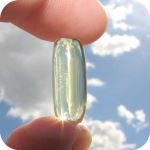
I often get asked “Does drinking alcohol affect a women’s chance of getting pregnant?” Unfortunately, the answer is yes, it can. Several studies into alcohol and fertility show that drinking reduces a woman’s chances of getting pregnant.
I then usually get the follow up question of “How much can I drink without it affecting my fertility?” The official guidelines are simply you should abstain from drinking alcohol completely while trying to conceive. But let us be pragmatic, you could be trying for months and there are bound to be social events like birthdays and weddings where it would be rude not to raise a glass in good cheer. So let us explore this with a little more realism.
How Much Alcohol Can I Drink When Trying to Conceive?
The current official guidelines say you should not drink anything. However, the Royal College of Obstetricians and Gynaecologists (RCOG) used to say women trying for a baby could have up to 2 units of alcohol on no more than 2 separate occasions per week. This works out at a small glass of wine or a pint of beer twice during the week. I think this is a sensible guideline, but you also need to factor in your body type and the timing of when you drink:
Body Type
Every one of us is unique and our bodies all handle alcohol in different ways; some of you may be able to down pints with rugby players without it affecting you, while for others, all it might take is a half a small glass of wine and you’re totally squiffy. So you may need to adjust the numbers in my guidelines down if you get drunk very quickly or you may be able to have a little more if you have the stomach of a concrete elephant.
Timing When You Drink
Some studies have shown that drinking alcohol during ovulation is more likely to prevent conception. Also, you should definitely not be drinking once you are pregnant due to the detrimental effects it can have on the developing baby. Because of this, you should not be drinking for at least one week before you ovulate. Once you have ovulated, you should not drink again until you have confirmed you are not pregnant with a pregnancy test or your normal period returns.
Why Does Alcohol Affect Fertility?
To be honest, we don’t fully know yet. However, evidence suggests:
- Alcohol reduces the release of hormones from the adrenal glands. This can impair egg quality and can also reduce your libido (though most report that a little alcohol makes them quite amorous)
- Regular alcohol consumption can contribute to irregular cycles, impaired ovulation and thinning of the lining of the uterus preventing implantation
- Oxidative stress caused by excessive drinking could damage the egg reserves in the ovaries, making them less viable
Whatever the exact mechanism, there is strong evidence that women who drink alcohol have lowered fertility and take longer to conceive.
Anything Else I Should Know About Alcohol and Fertility in Females
Alcohol and Hormone Balance
Alcoholic drinks can be high in sugar and this can affect your hormone balance (especially if you have a condition called PCOS), which can by itself lower your chances of getting pregnant.
Alcohol and Lifestyle
Alcohol consumption is also commonly associated with a lifestyle that has less than seven hours of sleep per night. This is not something you should be doing regularly as this can be detrimental to your overall health and that can affect fertility too.
Alcohol and Fertility Treatments
The advice regarding drinking alcohol when undergoing fertility treatments varies from clinic to clinic. Some doctors will advise avoiding alcohol altogether for up to three months before starting treatment, whereas other doctors won’t get concerned if you’re drinking small amounts. It is worthwhile for you to discuss this with your individual doctor, especially if you are taking medications which may interact badly with alcohol.
The reason why some clinics have strict advice on stopping alcohol completely is because of a study looking at IVF Treatment success rates in women who drank alcohol during fertility treatment. The study showed that IVF success was reduced by 25% in couples who were drinking the equivalent of one bottle of wine per week (approximately 10 units). The alcoholic drinks that have the worst effect on fertility treatment are white wine and beer.
Alcohol and Pregnancy
The guidance is crystal clear when it comes to drinking alcohol during pregnancy: do not drink any! Alcohol is known to increase the risk of miscarriage and when drunk regularly and in large quantities can cause developmental problems in babies, as well as a condition called Foetal Alcohol Syndrome. The effects of alcohol can occur at an early stage even before you are aware that you are pregnant, so this is even more reason to cut down or stop your alcohol intake when trying to conceive.
Tips to Lessen the Impact of Drinking Alcohol
If you drink a lot and want to know the best way to cut down, then visit your doctor or checkout the DrinkAware website for guidance on How to Cut Down. I also have a few personal tips of my own to add to their advice:
- Consider switching over to mocktails (virgin cocktails), they usually taste as good as the real thing, but you don’t get drunk. Though try to avoid the ones laden with sugar
- Try to avoid white wine and beer where possible, as these have the worst effect on fertility treatment
- If you are going to drink white wine and beer, cut back on the alcohol, but retain the volume by switching to wine spritzers and shandy (using club soda and diet lemonade to keep the sugar levels low)
- If you must go full fat with your alcohol, why not drink red wine or Guinness. They both have high levels of antioxidants and Guinness is also high in iron
- Finally, take vitamin C supplements which will help to reduce some of the damage you are doing to yourself, though keep your intake to under 1,000mg per day so you don’t overdose






